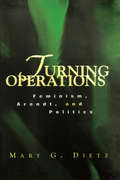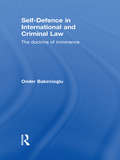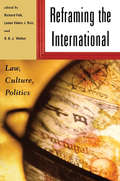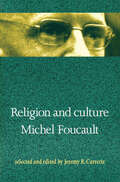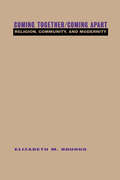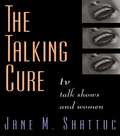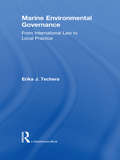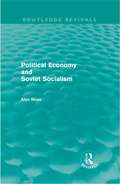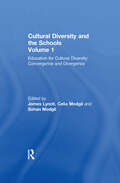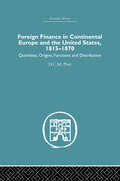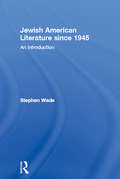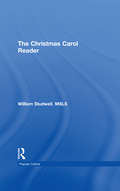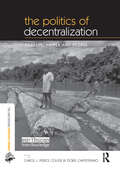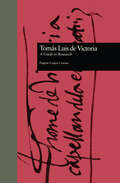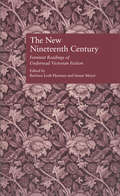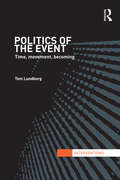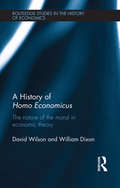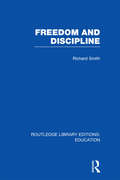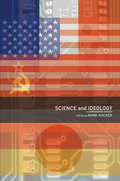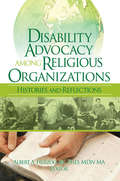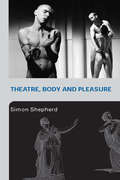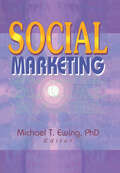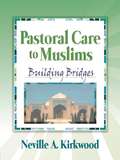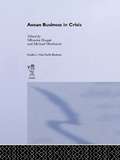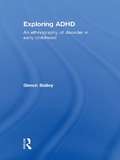Special Collections
Benetech’s Global Certified Accessible Titles
Description: Benetech’s GCA program is the first independent third-party EPUB certification to verify ebook accessibility. By creating content that is born accessible, publishers can meet the needs of all readers. Learn more: https://bornaccessible.benetech.org/
- Table View
- List View
Turning Operations
by Mary DietzThrough the re-interpretation of influential thinkers such as Arendt, Weil, Beauvoir and Habermas, Mary G. Dietz weds the concerns of demcratic thought with that of feminist political theory, demonstrating how important feminist theory has become to democratic thinking more generally. Bringing together fifteen years of commentary on critical debates, Turning Operations begins with problems central to feminism and ends with a series of reflections on the "the politics of politics," inviting the reader to think more expansively about the expressly public nature of political life.
Self-Defence in International and Criminal Law
by Onder BakirciogluDrawing from scholarship across law, history, politics and philosophy, Self-Defence in International and Criminal Law provides a broad and interdisciplinary approach to the doctrine of self-defence in both domestic criminal and international law. It focuses on the requirement of imminence, which deals with the question of when individuals or States may legitimately resort to defensive force against a serious danger or harm. In both national and international law the imminence requirement, if strictly applied, renders any defensive measure taken in anticipation of a would-be attack illegal. Recently, however, attempts have been made to relax the temporal requirement of the self-defence doctrine (imminence) with a view to allowing individuals or States to employ deadly force to arrest an anticipated threat when they ‘believe’ that using ‘pre-emptive’ lethal force would be the only way to thwart an expected harm. In domestic criminal law, it has been argued that it is necessary to relax the rule of imminence in domestic violence cases where women employ lethal force against their abusive partners when there is no imminent threat to justify defensive force. At the international level, while there has long been controversy as to the justifiability of pre-emptive force in non-confrontational settings, following the September 11 attacks, the Bush Administration’s ‘war on terror’ policy radically shifted the focus from the notion of anticipation to that of prevention, making it clear that, if necessary, it would invoke unilateral force against emerging threats before they are fully formed. The book surveys the roots, role, rationale, and objectives of self-defence and questions whether the requirement of imminence should be removed from the traditional contours of the self-defence doctrine in national and international law.
Reframing the International
by Richard Falk and Lester Edwin J. Ruiz and R. B. J. WalkerRe-Framing the International insists that, if we are to properly face the challenges of the coming century, we need to re-examine international politics and development through the prism of ethics and morality. International relations must now contend with a widening circle of participants reflecting the diversity and uneveness of status, memory, gender, race, culture and class.
Religion and Culture
by Michel FoucaultFirst Published in 1999. Routledge is an imprint of Taylor & Francis, an informa company.
Coming Together/Coming Apart
by Elizabeth BoundsThe idea of "community" is increasingly vital to our individual and social well-being. Yet at the same time, our ordinary communal relations are being eroded by increased social and geographical mobility, lost traditions, and the growing pluralism of society. Examining this renewed desire for community, Coming Together/Coming Apart locates the current problems of society in the conditions of modern capitalism. Arising out of a common matrix of a world in crisis, contemporary religious, social and feminist discussions of community compose an ideological struggle over the reformation of society.
The Talking Cure
by Jane M. ShattucThe Talking Cure examines four nationally syndicated television talk shows--Donahue, The Oprah Winfrey Show, Geraldo and Sally Jessy Raphael--which are primarily devoted to feminine culture and issues. Serving as one of the few public forums where working-class women and those with different sexual orientations have a voice, these talk shows represent American TV at its most radical. Shattuc examines the tension between talk's feminist politics and the television industry, who, in their need to appeal to women, trades on sensation, stereotypes and fears in order to engender product consumption. However, this genre is not a one-way form of social interaction. The female audience complies and resists in a complex give-and-take, and it is this relationship which The Talking Cure aims to understand and reveal.
Marine Environmental Governance
by Erika TecheraMarine Environmental Governance: From International Law to Local Practice considers the relationship between international environmental law and community-based management of marine areas. Focusing on small island states, in which indigenous populations have to a large extent continued to maintain traditional lifestyles, this book takes up the question of how indigenous customary law and state-based legislation can be reconciled in the implementation of international environmental law. Including a range of case studies, as well as detailed comparative analysis, it pursues an interdisciplinary approach to legal pluralism 'in practice' that will be of considerable interest to environmental lawyers, legal anthropologists, conservation biologists and those working in the area of community-based conservation.
Political Economy and Soviet Socialism
by Alec NoveFirst published in 1979, Political Economy and Soviet Socialism is an integrated selection of papers written over the past 12 years of Russian history, which offers a unique insight into some important and controversial issues. Professor Nove discusses the ideas of some of the leaders of the Russian revolution (Lenin, Trotsky and Bukharin), the political economy of socialism and the problems of the contemporary USSR. The author addresses the role of traditional Russian ideas in shaping the Soviet Union’s social structure and the conceptual problems involved in defining its ruling stratum - whether or not it is a class. He also considers the criteria by which it is reasonable to judge Soviet reality, the performance and prospects of agriculture in communist-ruled Europe, the ability of the Eastern bloc to tackle problems of inflation and the obstacles to economic reform. Looking at the important and original developments of economic thought in the USSR and Eastern Europe, Professor Nove dissects the ideas of the ‘new leftists’ concerning the role of market forces under a feasible socialism. These papers offer essential reading for students of politics, economics and comparative social structure.
Education Cultural Diversity
by James Lynch and Sohan Modgil and Celia ModgilFirst published in 1992. Routledge is an imprint of Taylor & Francis, an informa company.
Foreign Finance in Continental Europe and the United States 1815-1870
by D.C.M. PlattFirst Published in 2005. Routledge is an imprint of Taylor & Francis, an informa company.
Jewish American Literature since 1945
by Stephen WadeFirst published in 1999. Routledge is an imprint of Taylor & Francis, an informa company.
The Christmas Carol Reader
by Frank Hoffmann and William E Studwell and B Lee CooperLike that Biblical, astronomical star of Bethlehem, The Christmas Carol Reader guides readers on their quest for information about Christmas songs. Studwell gathers a composite picture of the world's most important and famous carols and includes an ample selection of lesser-known Christmas songs. All of the carols are presented in their historical and cultural contexts which adds to readers’understanding and appreciation of the songs.As the only book that covers this elusive topic, The Christmas Carol Reader informs and entertains readers on over 200 songs of all types (sacred and secular), of all periods (Middle Ages through the 20th century), and from a number of countries and cultures. Because many of the songs in The Christmas Carol Reader fit into more than one distinct category, Studwell wisely divides the songs into two major groups--those that reflect Christmas as a Holy Day and those that celebrate Christmas as a Holiday. Here is just a sample of the breadth of coverage of songs:Sacred: From Heaven Above to Earth I Come; O Come, O Come Emmanuel; Angels From the Realms of Glory; As With Gladness Men of Old; O Holy Night (Cantique de Noël); Thou Didst Leave Thy ThroneSecular: Happy Holiday; A Holly Jolly Christmas; God Rest You Merry, Gentlemen; Silver Bells; Here Comes Santa Claus; I'll Be Home for ChristmasMedieval: Puer Natus in Bethlehem (A Boy Is Born in Bethlehem); Coventry Carol; I Sing of a Maiden; La marche des rois (The March of the Kings); In Dulci Jubilo1500--1700's: Bring a Torch, Jeanette, Isabella; I Saw Three Ships; Carol of the Bagpipers1800's: Adeste Fideles (O Come All Ye Faithful); O Little Town of Bethlehem; What Child Is This?; It Came Upon a Midnight Clear; Stille Nacht, Heiliege Nacht (Silent Night)Spirituals: Go Tell It on the Mountain; I Wonder as I Wander; Mary Had a Baby; Rise Up, Shepherd, and FollowLittle Known: O Bethlehem!; The Sleep of the Infant Jesus; Song of the Nuns of ChesterCountries and Cultures: O Tannenbaum; Lulajze Jezuniu (Polish Lullaby); Fum, Fum, Fum; Carol of the Bells; Patapan; El rorro (The Babe)As readers learn about the history and nature of the Christmas carol in general and the specific history of individual religious and secular carols, they will learn some history and nature of the holiday season which can bring more enjoyment into their celebrations for years to come.On long winter nights, The Christmas Carol Reader can be read continuously as a series of fact-based commentaries on Christmas music. For shorter periods in between holiday activities, readers can peruse one of the topical sections or select, with the aid of the title index, an individual essay of interest. As a library reference, this book can provide facts for research on Christmas songs or just provide an entertaining education for curious library patrons.
The Politics of Decentralization
by Doris Capistrano and Carol J. Pierce ColferDecentralization is sweeping the world and having dramatic and far-reaching impacts on resource management and livelihoods, particularly in forestry. This book is the most up-to-date examination of the themes, experiences and lessons learned from decentralization worldwide. Drawing on research and support from all of the major international forestry and conservation organizations, the book provides a balanced account that covers the impact of decentralization on resource management worldwide, and provides comparative global insights with wide implications for policy, management, conservation and resource use and planning. Topics covered include forest governance in federal systems, democratic decentralization of forests and natural resources, paths and pitfalls in decentralization and biodiversity conservation in decentralized forests. The book provides in-depth case studies of decentralization from Bolivia, Ghana, Indonesia, Russia, Scotland, Switzerland, Uganda and the US, as well as highlights from federal countries including Australia, Brazil, Canada, India and Malaysia. It also addresses the critical links between the state, forests, communities and power relations in a range of regions and circumstances, and provides case examples of how decentralization has been viewed and experienced by communities in Guatemala, Philippines and Zimbabwe. The Politics of Decentralization is state-of-the-art coverage of decentralization and is essential for practitioners, academics and policy-makers across forestry and the full spectrum of natural resource management.
Toms Luis de Victoria
by Eugene Casjen CramerFirst published in 1998. Routledge is an imprint of Taylor & Francis, an informa company.
The New Nineteenth Century
by Susan Meyer and Barbara Leah HarmanThis book includes essays on writers from the 1840s to the 1890s, well known writers such as Anne Bronte, Wilkie Collins and Bram Stoker, lesser known writers such as Geraldine Jewsbury, Charles Reade, Margaret Oliphant, George Moore, Sarah Grand and Mary Ward. The contributors explore important thematic concerns: the relation between private and public realms; gender and social class; sexuality and the marketplace; and male and female cultural identity.
Politics of the Event
by Tom LundborgDespite occupying a central role and frequently being used in the study of international politics, the concept of the "event" remains in many ways unchallenged and unexplored. By combining the philosophy of Gilles Deleuze and his concept of the event with the example of 9/11 as an historical event, this book problematises the role and meaning of "events" in international politics. Lundborg seeks to demonstrate how the historical event can be analysed as a practice of inscribing temporal borders and distinctions. Specifically he shows how this practice relies upon an ongoing process of capturing various movements – of thought, sense, experience and becoming. However the book also demonstrates how these same movements express a life and reality that elude complete capture, highlighting the potential for alternative encounters with the event, encounters that constantly threaten to undermine the limits and imaginary completeness of the historical event. This book offers an exciting new way of thinking about the politics of encountering events, arguing that at the heart of such encounters there are always elements of uncertainty and contingency that cannot be fully resolved or fixed. It will be of great interest to students and scholars of international relations, cultural studies and history.
A History of Homo Economicus
by David Wilson and William DixonA key issue in economic discourse today is the relation (or lack of it) between economic behaviour and morality. Few (presumably) would want to deny that human beings are in some sense moral or ethical creatures, but the devil is in the detail. Should we think of economic behaviour as an essentially amoral process – a process adequately characterised by a means-ends rationality – into which any number of subjective ethical concerns or orientations may be intruded to give a particular action its determinate moral content? Or is it rather the case that our moral being runs deeper than this, in the sense that all of our behaviour – ‘economic’ or otherwise – is enabled or capacitated by a competence that is fundamentally ethical in character? With new analyses of the work of Hobbes and Smith, Dixon and Wilson offer a fresh approach to the debate surrounding economics and morality with a novel discussion of the self in economic theory. This book calls for a change in the way that the relation between economic behaviour and morality is understood – from an understanding of morality as a kind of preference that informs certain types of other-regarding behaviour (the way that modern economics understands the relationship), to an idea of morality as a competence that enables or, rather, conditions the possibility of all forms of human behaviour, other-regarding or not. Offering a new insight on homo economicus, this book will be of great interest to all those interested in the history of economics and of economic thought.
Freedom and Discipline
by Richard SmithQuestions of discipline and order arise wherever formal education is practised, and are particularly acute for those training to teach or in their first school posts. For many years now writing on these topics has tended to depict teaching as the deployment of ‘skills’ and ‘techniques’ and competent teachers as those who successfully ‘manage’ their classes. This approach is criticised by Richard Smith as manipulative and destructive of the kind of pupil-teacher relationship conducive to any but the most trivial sorts of learning. Thus the philosophical issues which the book explores are shown throughout to have their roots in problems associated with established thinking and practice, and the author’s ideas have considerable practical relevance. He argues for a thorough reappraisal of the nature and basis of the teacher’s authority and demonstrates the importance of a proper understanding of the function of punishment. He suggests that many of the problems of discipline that teachers meet may actually stem from inappropriate ways of treating pupils, and shows that solutions to these problems must be compatible with the degree of initiative and personal responsibility that it is the business of education to foster. Schools have changed in many ways, largely for the better, since the first edition of this book appeared: the young people in them are generally treated with far more respect than was the case a quarter of a century ago. The voices of a more repressive tradition however still make themselves heard from time to time. It is therefore important continually to re-state the principles on which civilised relationships between pupils and teachers need to be based.
Science and Ideology
by Mark WalkerDoes science work best in a democracy? Were 'Soviet' or 'Nazi' science fundamentally different from science in the USA? These questions have been passionately debated in the recent past. Particular developments in science took place under particular political regimes, but they may or may not have been directly determined by them.Science and Ideology brings together a number of comparative case studies to examine the relationship between science and the dominant ideology of a state. Cybernetics in the USA is compared to France and the Soviet Union. Postwar Allied science policy in occupied Germany is juxtaposed to that in Japan. The essays are narrowly focussed, yet cover a wide range of countries and ideologies. The collection provides a unique comparative history of scientific policies and practices in the 20th century.
Disability Advocacy Among Religious Organizations
by Albert A HerzogGain insight into the importance of advocacy for the disabled within various religious and secular organizationsYou shall love your neighbor as yourself. (Romans 13:9) Through the years, religious organizations have worked to fulfill this biblical mandate. Disability Advocacy Among Religious Organizations: Histories and Reflections chronicles the progress of different ministries&’ advocacy for the disabled since 1950 as they worked toward fulfilling this mission. This enlightening history of several religious organizations&’ efforts charts the trends in advocacy while offering readers insight into ways to assist people with disabilities both within religious organizations and in society. Issues are explored by drawing upon numerous documents, communications, and in-depth reviews of the advocates&’ work.This book draws together in a single volume the stories of various religious organizations and their struggles to advocate for the disabled. Because of society&’s tendency to isolate and fear them, special needs individuals such as the mentally and physically disabled have long found it difficult to be accepted, understood, or to receive proper care. However, ministries strive to be advocates for all of their members and their needs, including education, treatment, and appropriate legislation. Disability Advocacy Among Religious Organizations: Histories and Reflections recounts the steps organizations have taken to focus on ending isolation and fear through inclusion and appropriate care of members with various disabilities. These historical accounts examine the depth, breadth, and on-going need for disability advocacy in religious organizations.Disability Advocacy Among Religious Organizations: Histories and Reflections discusses the advocacy backgrounds of: the World Council of Churches the National Council of Churches National Catholic Partnership on Disability National Apostolate for Inclusion Ministry American mainline Protestant denominationsthe American Baptist Convention, Disciples of Christ, the Episcopal Church, the Evangelical Lutheran Church in America, the Presbyterian Church USA, the United Methodist Church, and the United Church of Christ the Christian Reformed Church American Association on Mental Retardation (AAMR) Religion and Spirituality Division Bethesda Lutheran homes and Services, Inc. the Christian Council on Persons with Disabilities (CCPD) Friendship Ministries Joni and Friends the Mennonite advocacy for persons with disabilities the Religion and Disability Program of the National Organization on DisabilityDisability Advocacy Among Religious Organizations: Histories and Reflections is valuable reading for clergy and laypeople in disability advocacy in religious organizations, educators, students, seminary students preparing for ministries, and religious historians.
Theatre, Body and Pleasure
by Simon ShepherdBreaking new ground in the study of performance theory, this maverick and powerful project from renowned Renaissance scholar and queer theorist Simon Shepherd presents a unique take on theory and the physical reality of theatre. Examining a range of material, Theatre, Body, Pleasure addresses a significant gap in the literary and drama studies arenas and explores the interplay of bodily value, the art of bodies and the physical responses to that art. It explains first how the body makes meaning and carries value. Then it describes the relationships between time and space and body. The book’s features include: * large historical range, from medieval to postmodern * case studies offering close readings of written texts * examples of how to ‘read for the body’, exploring written text as a ‘discipline’ of the body * breadth of cultural reference, from stage plays through to dance culture * a range of theoretical approaches, including dance analysis and phenomenology Writing in accessible prose, Shepherd introduces new ways of analyzing dramatic text and has produced a book which is part theatre history, part dramatic criticism and part theatrical tour de force. Students of drama, theatre and performance studies and cultural studies will find this an absolute must read.
Social Marketing
by Michael T. EwingHarness commercial marketing techniques to spark social change!American Express, Avon, BMW, Kellogg’s, Liz Claiborne, McDonald’s, Reebok, and other corporations have embraced social and cause-related marketing as a way to connect with their customers. This vital book examines the “how and why” as well as the causes and effects of this fast-growing trend in marketing. Social Marketing brings you: an overview of recent global developments in social marketing a study comparing the effectiveness of a CRM program with that of “ambush” advertising a case study of Hungersite.com that investigates motivations for donating time, money, and other resources to charities a wary look at the “darker side” of globalization and liberalization and more!
Pastoral Care to Muslims
by Neville A. KirkwoodFulfill Christ's injunction in Matthew 25!Pastoral Care to Muslims: Building Bridges recognizes that more and more often pastoral care workers are encountering Muslims in hospitals. This is the guidebook you need to provide the spiritual support these patients are able to accept--support that doesn't conflict with their religious affiliations.The first section of Pastoral Care to Muslims provides an outline of the major beliefs of Islam, chiefly those that relate to illness and dying. The Koran is freely quoted to support these beliefs and practices. The second section of the book delivers a set of guidelines for the practice of pastoral care to hospitalized Muslims. These guidelines have been field tested with positive results. The book's two appendixes supply you with samples of the kinds of prayers that are acceptable to Muslims. In this valuable book you'll find: background information about the Muslim faith quotations from the Koran that you can use in your practice what you need to understand about the Muslim view of sickness, death, and dying Plus explanations of terms and concepts found in Islam, including: the Islamic Creed Tawhid (the concept of the unity of God) Gehenna (Hell) the Five Pillars of IslamPastoral Care to Muslims: Building Bridges will help you do just that: build bridges between Christians and Muslims. It will supply you with material you can use to minister to Muslims without the fear of offending them and give you the confidence you need to deliver effective pastoral care to this growing segment of the population.
ASEAN Business in Crisis
by Michael Hitchcock and Mhinder BhopalThe impact of the Asia crisis has contributed to the debate about the need for regulation of global markets. This book outlines the events leading up to and during the Financial Crisis of 1997 and assesses the responses of the financial contagion.
Exploring ADHD
by Simon BaileyAttention Deficit Hyperactivity Disorder (ADHD) is the most commonly diagnosed psychiatric condition of childhood worldwide, yet the medical and psychological perspectives that dominate our understandings of ADHD present problems in their reductive understanding of the condition. Exploring ADHD incorporates Michel Foucault’s notions of discourse and power into a critical ethnographic framework in order to analyse ADHD in terms of both the historical conditions that have shaped understandings of the disorder, and also the social conditions which build individual diagnostic cases in today’s schools and families. In this ground-breaking text, Simon Bailey also: acknowledges the necessary work of classrooms, schools and families in contributing to a social order; examines the problem of teacher autonomy and the constraints placed on schools to ‘perform’; describes the role of nurture groups in governing the emotional conduct of children; presents a unique gender analysis of ADHD. This fascinating new book will be of interest to researchers and academics in the field of early childhood education, special and inclusive education, and will illuminate and spark new debate in the arena of ADHD.
